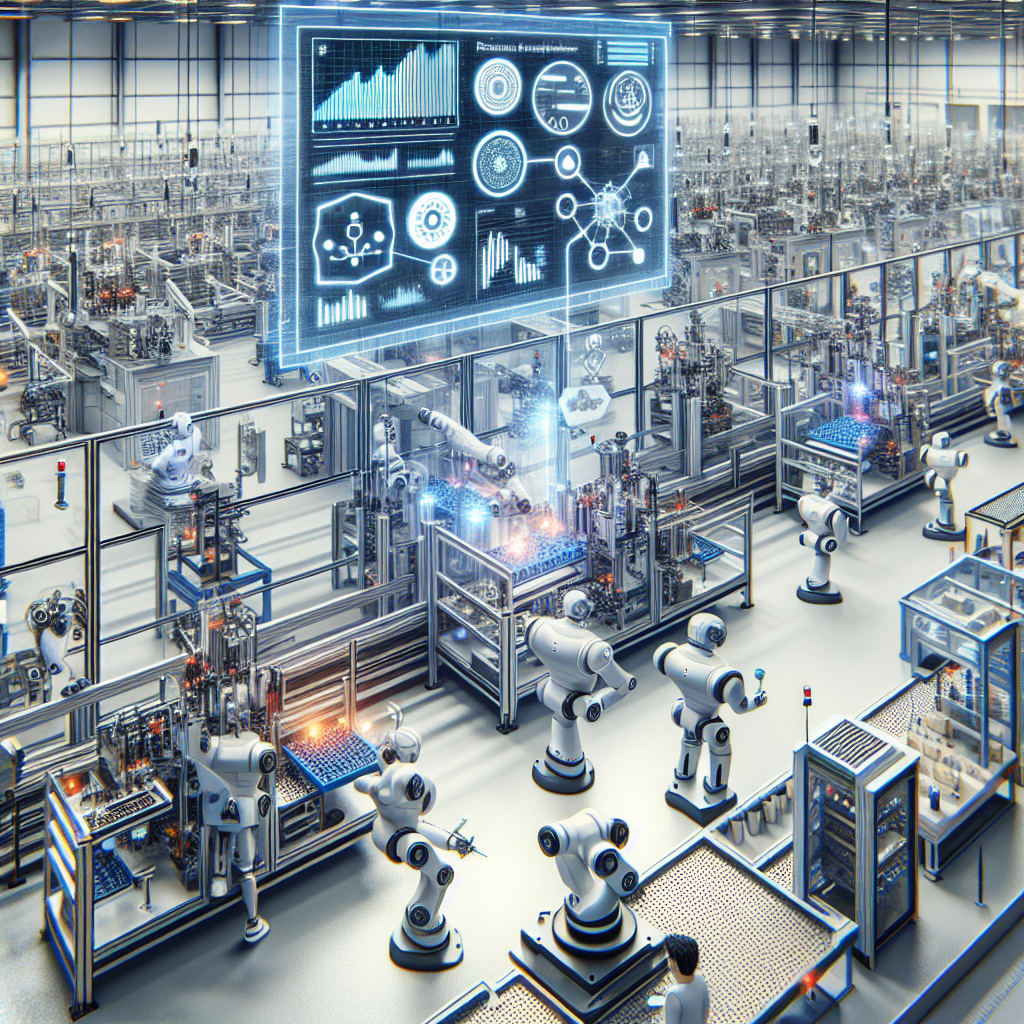The Impact of AI on Production Planning in Manufacturing
Artificial Intelligence (AI) has been making waves in various industries, and the manufacturing sector is no exception. One area where AI is revolutionizing the way things are done is in production planning. Production planning is a crucial aspect of manufacturing, as it involves determining what needs to be produced, when it needs to be produced, and how it needs to be produced. With the help of AI, manufacturers can optimize their production planning processes, leading to increased efficiency, reduced costs, and improved overall performance.
AI in production planning involves the use of advanced algorithms and machine learning techniques to analyze data, predict outcomes, and make informed decisions. By processing large amounts of data quickly and accurately, AI can help manufacturers optimize their production schedules, minimize downtime, and improve resource utilization. Here are some ways in which AI is impacting production planning in manufacturing:
1. Demand Forecasting: AI can analyze historical sales data, market trends, and other relevant factors to accurately predict future demand for products. By having a better understanding of demand patterns, manufacturers can adjust their production schedules and inventory levels accordingly, reducing the risk of overstocking or stockouts.
2. Production Scheduling: AI algorithms can optimize production schedules by taking into account various constraints such as machine capacities, labor availability, and order priorities. By considering all these factors simultaneously, AI can generate the most efficient production schedule that maximizes output while minimizing costs.
3. Resource Allocation: AI can help manufacturers allocate resources such as raw materials, equipment, and manpower more effectively. By analyzing production data in real-time, AI can identify bottlenecks, streamline workflows, and ensure that resources are used efficiently to meet production targets.
4. Quality Control: AI can also play a role in quality control by monitoring production processes, detecting defects, and identifying potential issues before they escalate. By implementing AI-powered quality control systems, manufacturers can reduce waste, improve product quality, and enhance customer satisfaction.
5. Predictive Maintenance: AI can predict equipment failures before they occur by analyzing sensor data, historical maintenance records, and other relevant information. By proactively addressing maintenance issues, manufacturers can minimize downtime, extend the lifespan of equipment, and reduce maintenance costs.
6. Inventory Management: AI can optimize inventory levels by predicting demand, lead times, and other factors that impact inventory turnover. By maintaining optimal inventory levels, manufacturers can reduce carrying costs, improve cash flow, and ensure that products are available when needed.
7. Real-time Monitoring: AI can provide real-time insights into production processes by collecting and analyzing data from sensors, machines, and other sources. By monitoring key performance indicators (KPIs) in real-time, manufacturers can identify opportunities for improvement, address issues promptly, and make data-driven decisions.
FAQs:
Q: How can AI improve production planning in manufacturing?
A: AI can improve production planning in manufacturing by optimizing production schedules, predicting demand, allocating resources efficiently, enhancing quality control, facilitating predictive maintenance, optimizing inventory management, and providing real-time monitoring of production processes.
Q: What are some benefits of using AI in production planning?
A: Some benefits of using AI in production planning include increased efficiency, reduced costs, improved resource utilization, enhanced quality control, minimized downtime, better inventory management, and real-time insights into production processes.
Q: Are there any challenges associated with implementing AI in production planning?
A: Yes, there are several challenges associated with implementing AI in production planning, such as data integration issues, lack of expertise, resistance to change, and concerns about data privacy and security. However, with proper planning and support, these challenges can be overcome.
Q: What is the future of AI in production planning?
A: The future of AI in production planning looks promising, as more manufacturers are recognizing the benefits of AI-powered solutions. In the coming years, we can expect to see further advancements in AI technologies, increased adoption of AI in production planning, and continued improvements in efficiency and productivity.
In conclusion, AI is transforming production planning in manufacturing by enabling manufacturers to optimize their processes, improve efficiency, and stay competitive in a rapidly evolving market. By leveraging the power of AI, manufacturers can make smarter decisions, reduce costs, and deliver high-quality products to customers. As AI continues to evolve, we can expect to see even greater advancements in production planning and manufacturing as a whole.

